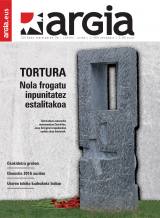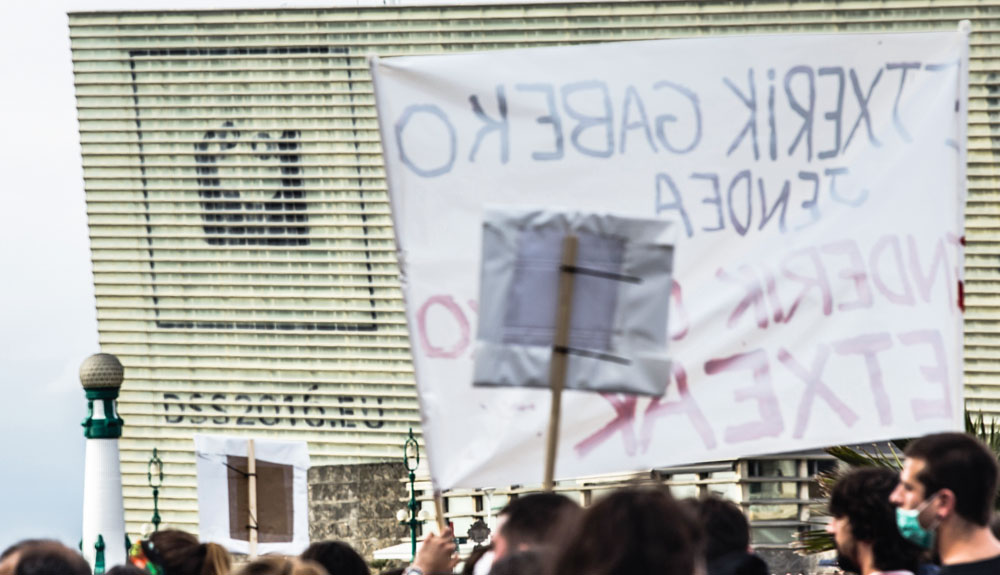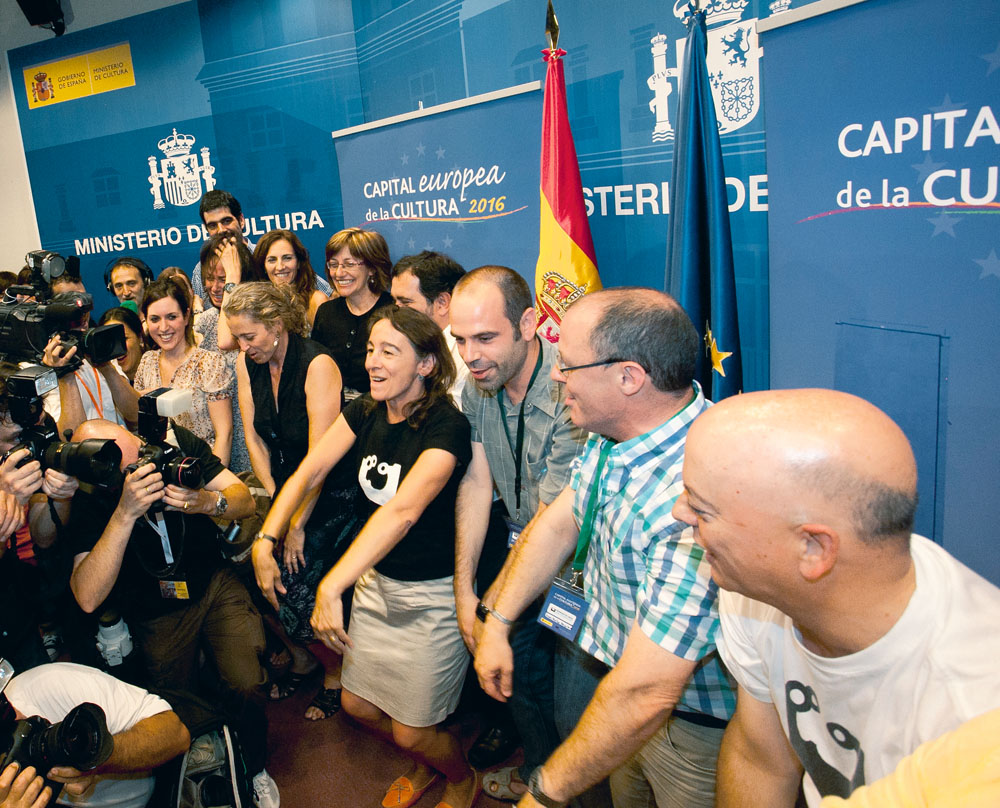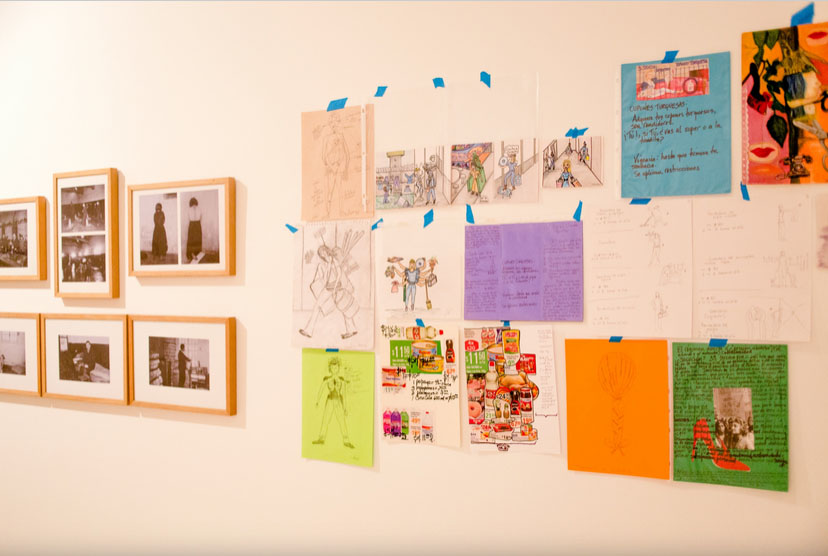Does culture justify it?
- In Donostia-San Sebastián 2016, the Catalan anthropologist Manuel Delgado believes that there is not much to save. Last week he talked about the cultural capital invited by the Desokupatu group: questioning the main way to understand current culture, he criticized the city model that underlies these kinds of events.
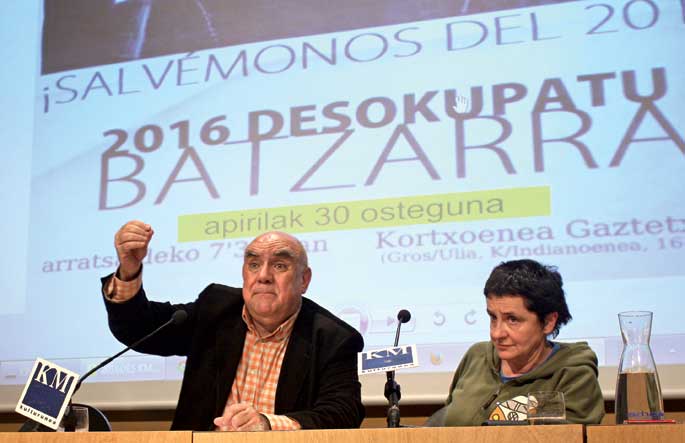
Against San Sebastian 2016? Yes, Manuel Delgado has defended the right to have that attitude on 22 April at Koldo Mitxelena Kulturunea. 2016 The Desokupatu movement brings the professor of anthropology at the University of Barcelona to give a lecture: Culture as an excuse. Cultural capital and market of cities. That has aroused curiosity, no doubt. The room is full by the time the event has started, there are only free places left in the front lines and from there we have heard you say that any such as the European capital of culture are part of a “strategy of domination”.
“They broadcast abstract categories that can mean anything. And, therefore, justify anything.” In this case, this category is the “culture”. And after using it emptying content over and over again, it seems that the fact that San Sebastian stands against 2016 is tantamount to acting “against culture”. A simplistic logic, yes, but very widespread and much more effective than is thought to condition public debate.
However, the question that really matters is another one for Delgado: what is used to justify culture? Quote the business of the usual suspects: housing promotions, tourist interests...
Do you want to show that San Sebastian is “peaceful”?
“But you already know that,” he continued. He speaks quickly, mixing examples of everyday life and academic references, without giving up humor – the public responds to the jokes he sometimes makes for him. Continue: “Donostia is already a cultural city,” he says after describing the normal march he has seen on the street before entering the conference. "Maybe someone wants to prove that it's a peaceful city," added lehendakari.
Delgado has completed his entire intervention, drawing parallels, leaving aside the dimensions of both capitals and their contribution to the market of the cities, equating the urban ehors of Barcelona with those of San Sebastian. For example, with the 1992 Olympic Games: “Barcelona wanted to show that it was the city of sport and peace, the antithesis of barbarism that was taking place at the time across the Mediterranean. It was Anti-Sarajevo.”
Against war, sport? Well, it doesn't sound that bad, doesn't it? But it's not just a war, but the new city model is trying to end any conflict. And saying “against the workers, culture” has a more ugly melody, for example. An example of this has taken us from home, from the Euskalduna Palace. After highlighting the "aseptic, perfect" aspect of the Bilbaíno building, he recalled the labor struggles that decades ago filled the first pages of the newspapers. It's the same place, but there's no trace of incidents. “The message is that culture has won the conflict, that culture serves to pacify cities, to put an end to conflicts. Some have always had that goal.” Where there is a trigger, culture will prevent the explosion, and the Catalan professor believes that any kind of struggle can be deactivated by the population.
Culture, that secular religion
By the way, Delgado is a professor of religious anthropology, how do you deal with this issue? Because, according to him, the way we understand the issue has to do with religion. Let us go step by step: first of all, you have questioned whether one thing that is decided is culture or not. “It’s an absolutely mystical space, there are few people who say at all times what it deserves to occupy that place.”
OK. What else? “In this situation, artists play a role as intermediaries, make people live abstract experiences through creative operations.” Well, what about religion? Now, now: “The role of the theology of the Christian tradition is that of today’s cultural mediators. The idea of God’s grace has moved on to the secular plane and has given people the opportunity to create universes. That is why culture is an instrument of sanctification. No wonder concerts resemble liturgies, cultural centers and temples... Culture means anything, and as it is accepted that it implies a truth, culture is a state religion.” A remix of Karl Marx to round off: “Culture, as it is understood today, is the opium of the people.” A supposed tool for collective virtuosity, something that drives civic values ideally, something wonderful that should raise the moral tone of the community. Everything is a bit far from reality, says Delgado.
Is there a leak?
Let's go back to San Sebastian. Is there nothing that can be saved in the project? The anthropologist thinks not. No, if culture is not understood otherwise: "And it can be something else, but we have to take those who have it hostage. Culture is on the street every day, we are all cultural beings. But in today's terms, everything is ready for you to think that your life is worth nothing. And I am against any pretension to separate myself from the culture of life”, he said, remembering that the approach is not so new, that surrealists and situationists claimed something similar.
Before starting the question and answer space, an ironic recommendation to the audience: to go to all the events of next year – I hope they will be free – and to listen to Julio Iglesias when everything happens, because he will be right: “Life remains the same” (life remains the same). The same song contains another phrase that the anthropologist considers more appropriate to reinforce his thesis: “There is always one to live for to fight.” And, of course, they do not appear in the 2016 programme.
In May 2006, the City organized a conference at the San Telmo Museum to publicize the great cultural projects of San Sebastian. In it were presented the Victoria Eugenia Theatre, the San Telmo Museum and Tabakalera. The Victoria Eugenia Theatre was opened in March 2007. San... [+]
Iazko abenduko egun bat izan zen, larunbat goiza. Ahoz aho zabaldutako informazioari esker izan nuen filmaren proiekzioaren berri eta kulturgune batera joan nintzen, Donostian, gauza handirik jakin gabe: zer ikusiko genuen pantailan, sarrerarik ordaindu behar ote zen, zenbat... [+]









